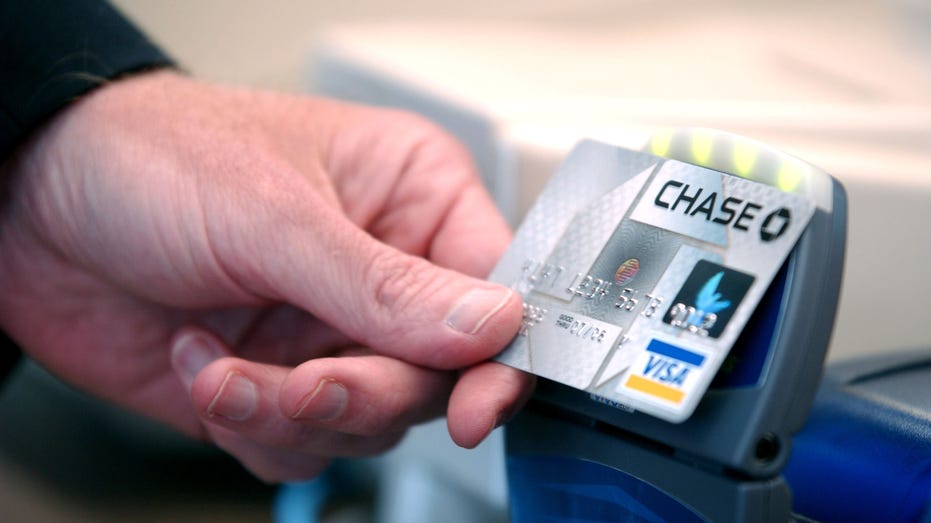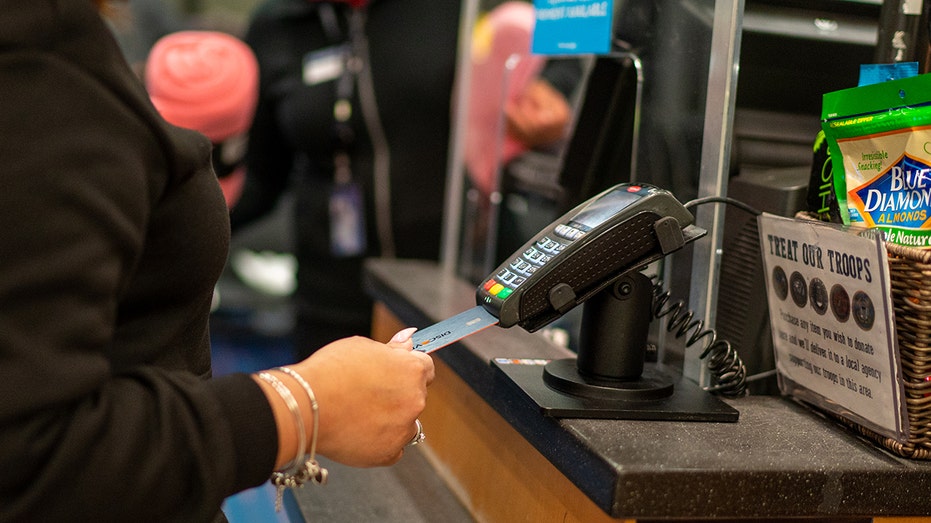Retail trade group urges passage of bill that would reduce credit card 'swipe fees': Here's why
National Retail Federation says American families paid over $1,000 in higher costs due to credit card swipe fees
Americans spending like it's 1999, but it's not retail therapy - it's retail hemlock
FOX Business host Charles Payne breaks down consumer spending patterns on 'Making Money.'
The National Retail Federation (NRF), the nation's largest retail trade group, is urging Congress to pass the bipartisan Credit Card Competition Act (CCCA), saying it has the potential to save consumers and businesses $15 billion annually.
The trade group even went as far as launching a six-figure advocacy campaign Monday to urge members of Congress to pass this bill.
That CCCA – which is slated to receive a vote during this session of Congress, and could come as early as this week – is poised to enhance credit card competition and, subsequently, reduce excessive credit card fees for merchants.
HOW CREDIT CARD SWIPE FEES ARE HITTING CONSUMERS
"Swipe fees" are payments credit card companies charge retailers every time a customer swipes their card. In recent years, these fees have "gone up at a drastic pace," Dylan Jeon, NRF senior director of government relations, told FOX Business.

Chase Bank credit card with "blink" technology is displayed during a press conference at an Arby's restaurant on June 8, 2005, in Denver. (Thomas Cooper/Getty Images / Getty Images)
The issue is that these are passed onto consumers in the form of higher prices from retailers.
To date, swipe fees are now the second-highest operating cost after labor, according to Jeon. With retailers operating on such thin margins, they aren't able to fully absorb the increase in costs, so they pass them on to the shopper.
In 2022, there was a 20% jump in these fees compared to the year prior, effectively pushing up operating costs for retailers, according to Jeon.
SMALL BUSINESSES DESERVE RELIEF FROM SOARING CREDIT CARD SWIPE FEES
Last year, while simultaneously facing inflationary pressures, the average American family paid over $1,000 through higher prices because of swipe fees
The NRF expects that figure to grow unless Congress can "correct this market and introduce more competition," Joen argued.
Currently, Visa and Mastercard have what some call a duopoly, essentially controlling 80% of the credit card market.

Last year, the average American family paid over $1,000 through higher prices because of swipe fees. (Robert Nickelsberg/Getty Images / Getty Images)
"This market dominance allows them to set the swipe fees charged by their member banks with impunity,"Joen said, adding that the current system greatly benefits Visa and Mastercard. These companies have seen their collected swipe fees grow from $61.3 billion in 2020 to $93.2 billion in 2022, he added.
Retailers must accept the fees in order to take credit cards as payment.
GET FOX BUSINESS ON THE GO BY CLICKING HERE
However, if passed, this legislation would effectively break up the "duopoly" and require the nation’s largest credit card-issuing financial institutions to enable a second processing network to route transactions.
| Ticker | Security | Last | Change | Change % |
|---|---|---|---|---|
| MA | MASTERCARD INC. | 535.33 | -13.41 | -2.44% |
| V | VISA INC. | 325.58 | -6.00 | -1.81% |
New competitors in the credit card market would force the two networks to compete for a retailer's business by, in part, enhanced service and lower swipe fee rates, according to Joen.
Richard Hunt, executive chairman of the Electronic Payments Coalition, argues the bill "amounts to nothing more than a windfall for retail giants like Walmart and Target all paid for by American consumers."
Hunt said that the government mandates within the bill "will jeopardize reward programs families rely on" and weaken "consumer protections by opening up our nation's secure, reliable payment rails up to third-party networks, including those operated by Chinese companies."
Joen said the NRF found that "the reduction in rewards would be extremely minimal."
This story has been updated with comment from the Electronic Payments Coalition





















